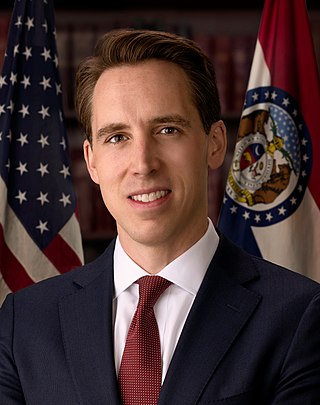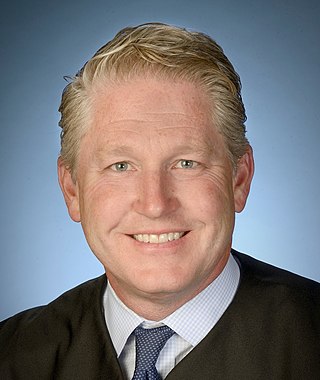
The International Emergency Economic Powers Act (IEEPA), Title II of Pub. L. 95–223, 91 Stat. 1626, enacted October 28, 1977, is a United States federal law authorizing the president to regulate international commerce after declaring a national emergency in response to any unusual and extraordinary threat to the United States which has its source in whole or substantial part outside the United States. The act was signed by President Jimmy Carter on December 28, 1977.

The Support Our Scouts Act of 2005 was passed as part of the Department of Defense Appropriations Act, 2006 to prevent Local, State and Federal agencies from reducing their support for the Boy Scouts of America. The bill was passed in the wake of a number of controversies involving the Boy Scouts of America, such as their exclusion of gays and atheists, and subsequent attempts to limit government support of the organization.
Internet censorship in the United States of America is the suppression of information published or viewed on the Internet in the United States. The First Amendment of the United States Constitution protects freedom of speech and expression against federal, state, and local government censorship.

Jeffrey Neale Jackson is an American politician, attorney, and military officer who has served as the 52nd attorney general of North Carolina since 2025. A member of the Democratic Party, he previously served as the U.S. representative for North Carolina's 14th congressional district from 2023 to 2024 and represented the 37th district in the North Carolina Senate from 2014 to 2022.

Joshua David Hawley is an American politician and lawyer serving as the senior United States senator from Missouri, a seat he has held since 2019. A member of the Republican Party, Hawley served as the 42nd attorney general of Missouri from 2017 to 2019, before defeating two-term incumbent Democratic senator Claire McCaskill in the 2018 election and winning reelection in 2024.

ByteDance Ltd. is a Chinese internet technology company headquartered in Haidian, Beijing and incorporated in the Cayman Islands.

Brendan Thomas Carr is an American lawyer who has served as a member of the Federal Communications Commission (FCC) since 2017. Appointed to the position by Donald Trump, Carr previously served as the agency's general counsel and as an aide to FCC commissioner Ajit Pai. In private practice, Carr formerly worked as a telecommunications attorney at Wiley Rein.

TikTok, known in mainland China and Hong Kong as Douyin, is a Chinese short-form video-hosting service owned by Chinese internet company ByteDance. It hosts user-submitted videos, which may range in duration from three seconds to 60 minutes. It can be accessed with a smartphone app or the web.

Carl John Nichols is a United States district judge of the United States District Court for the District of Columbia and a judge of the United States Foreign Intelligence Surveillance Court.

TikTok v. Trump was a lawsuit before the United States District Court for the District of Columbia filed in September 2020 by TikTok as a challenge to President Donald Trump's executive order of August 6, 2020. The order prohibited the usage of TikTok in five stages, the first being the prohibition of downloading the application. On September 27, 2020, a preliminary injunction was issued by Judge Carl J. Nichols blocking enforcement of that executive order. The lawsuit, by then captioned TikTok v. Biden, was dismissed in July 2021, following the Biden Administration's rescission of the executive order.

Many countries have imposed past or ongoing restrictions on the short-form video-hosting service TikTok. Bans from government devices usually stem from national security concerns over potential access of data by the Chinese government. Other bans have cited children's well-being and offensive content such as pornography.
In 2020, the United States government announced that it was considering banning the Chinese social media platform TikTok upon a request from then-president Donald Trump, who viewed the app as a national security threat. The result was that TikTok owner ByteDance—which initially planned on selling a small portion of TikTok to an American company—agreed to divest TikTok to prevent a ban in the United States and in other countries where restrictions are also being considered due to privacy concerns, which themselves are mostly related to its ownership by a firm based in China.

The Bipartisan Safer Communities Act is a United States federal law, passed in 2022. It implemented several changes to the mental health system, school safety programs, and gun control laws. Gun control laws in the bill include extended background checks for firearm purchasers under the age of 21, clarification of federal firearms license (FFL) requirements, funding for state red flag laws and other crisis intervention programs, further criminalization of arms trafficking and straw purchases, and partial closure of the gun show loophole and boyfriend loophole. It was the first federal gun control legislation enacted in 28 years.
NetChoice is a trade association of online businesses that advocates for free expression and free enterprise on the internet. It currently has six active First Amendment lawsuits over state-level internet regulations, including NetChoice v. Paxton, Moody v. NetChoice, NetChoice v. Bonta and NetChoice v. Yost.

The Consolidated Appropriations Act, 2023 is a $1.7 trillion omnibus spending bill funding the U.S. federal government for the 2023 fiscal year. It includes funding for a range of domestic and foreign policy priorities, including support for Ukraine, defense spending, and aid for regions affected by natural disasters. It also includes provisions related to advanced transportation research, health care, electoral reform, and restrictions on the use of the social media app TikTok.

The short-form video-hosting service TikTok has been under a de jure nationwide ban in the United States since January 19, 2025, due to the US government's concerns over potential user data collection and influence operations by the government of the People's Republic of China. The ban took effect after ByteDance, the China-based parent company of TikTok, failed to sell the service before the deadline of the Protecting Americans from Foreign Adversary Controlled Applications Act. Prior to the ban, individual states, cities, universities, and government-affiliated devices had restricted TikTok.

The RESTRICT Act is a proposed law that was first introduced in the United States Senate on March 7, 2023. Introduced by Senator Mark Warner, the Act proposed that the Secretary of Commerce be given the power to review business transactions involving certain information and communications technologies products or services when they are connected to a "foreign adversary" of the United States, and pose an "undue and unacceptable risk" to the national security of the United States or its citizens.

The Protecting Americans from Foreign Adversary Controlled Applications Act (PAFACA) is an act of Congress that was signed into law on April 24, 2024, as part of Public Law 118-50. It would ban social networking services within 270 days if they are determined by the president of the United States and relevant provisions to be a "foreign adversary controlled application", with a possible extension of up to 90 days to be granted by the president; the definition covers websites and application software, including mobile apps. The act explicitly applies to ByteDance Ltd. and its subsidiaries—including TikTok—without the need for additional determination, with the company to become compliant by January 19, 2025. It ceases to be applicable if the foreign adversary controlled application is divested and no longer considered to be controlled by a foreign adversary of the United States.
TikTok, Inc. v. Garland, 604 U.S. ___ (2025), was a United States Supreme Court landmark case brought by ByteDance Ltd. and TikTok on the constitutionality of the Protecting Americans from Foreign Adversary Controlled Applications Act (PAFACA) based on the Freedom of Speech Clause of the First Amendment, the Bill of Attainder Clause of Article One, Section Nine, and the Due Process Clause and Takings Clause of the Fifth Amendment. The case was consolidated with Firebaugh v. Garland, a lawsuit filed by TikTok content creators against the law.

The Secure Equipment Act of 2021 is a U.S. federal statute enacted by the 117th United States Congress and signed into law by President Joe Biden on November 11, 2021. This law requires the U.S. Federal Communications Commission (FCC) to issue rules stating that it will no longer review or approve any authorization application for equipment that poses an unacceptable risk to national security.










